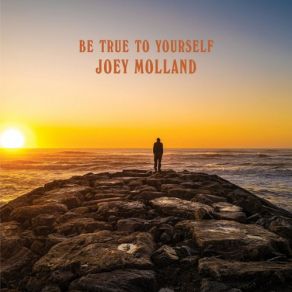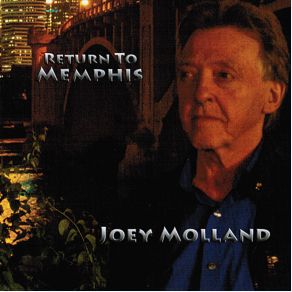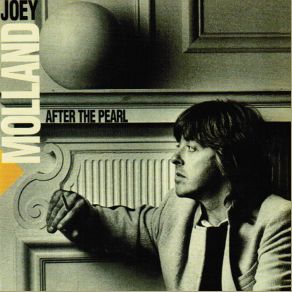Joey Molland
Wikimp3 information about the music of Joey Molland. On our website we have 5 albums and 1 collections of artist Joey Molland. You can find useful information and download songs of this artist. We also know that Joey Molland represents Rock genres.
Biography
[Edit]Badfinger guitarist Joe Molland began playing piano at five or six years of age at his Liverpool home — "of course I didn't really play it, I just kinda plunked it a bit, and I learned some chords...I can't remember how I learned those chords but I knew chords and then my brother got a guitar" he told this writer in an interview for Visual Radio-Television while at Vincent's Nightclub in Massachusetts, October 3, 2001. "I heard a record, "Blue Suede Shoes," Elvis Presley's version, and I went right in the living room and got my brother's guitar out and I went to the piano and found the notes on the piano on the guitar, and I started to teach myself to play the guitar. I was eleven years old and that's how I started to play the guitar." Molland's first band was the Assassins, "...a very good name, that's about what we did to the songs we tried to play" he jested, "we used to rehearse in a church up there, (maybe) Mystery Park, the area in Liverpool, I was born in Edgehill, a real working class neighborhood, cardboard in your shoes, stuff like that." The Assassins lasted three to six months, "I was in school, I was actually busy getting expelled from school." The Profiles was the band that followed — "I learned to play guitar on a street in Liverpool called Penny Lane, it's a famous place, and me mate Pigeon, we used to go and hang around the corner there and learn Chuck Berry songs. Peter Edge was his real name and he had an amplifier. I didn't have an amplifier. I had a home-made guitar my brother had made."
A friend of Edge was one Pete Wiggins, who found Molland working at a shipping company, "steamships and stuff" the singer/guitarist emphasized. While on a lunch break, Wiggins asked Joe Molland if he still played guitar. When he replied in the affirmative, Wiggins took him to a pub to perform. "I was 16 or 15 at the time, I went to the club and I played a bunch of Chuck Berry songs with this band, and they gave me a pound! I was working at the shipping company making almost three and a half pounds a week, two and three quarter pounds a week and they paid me a pound for playing one night, Chuck Berry songs — and they gave me drinks as well." Molland stayed six to eight months, "perhaps a bit longer" with the Profiles, his second group. "I went to a club called The Blue Angel, a famous place, Allan Williams' club, you know, the Beatles manager guy who gave them up, his club. I started getting up with a band there called the Masterminds and eventually they asked me to join them. I joined the Masterminds and we went on from there." In 1965/1966, the Rolling Stones original producer Andrew Loog Oldham recorded a Bob Dylan tune with the band, "She Belongs to Me." "I joined the Merseybeats, the Fruit Eating Bears, the Cryings Shames, and then Gary Walker & the Rain." That band also recorded, and Molland's stay was from 1967-1968. When a band named the Iveys signed to Apple Records they changed their name to Badfinger. Paul McCartney gave them "Come and Get It" from the Peter Sellers' film The Magic Christian. "I didn't play on "Come and Get It," Molland declares, but when they decided to move Tom Evans to bass, effectively removing the Iveys' bassist, Joey Molland was brought in to play guitar, and performed on 1970's No Dice album with that definitive guitar sound which helped establish the Top Ten smash "No Matter What."
Joe Molland is a survivor in the truest sense of the word, not because he's the one left standing after the dust has cleared, but because he has genuine talent which puts him in the same league as the famous people he has rubbed shoulders and enjoyed friendships with. In 1999 he released Battle, demos from 1972- 1999, sold via e-mail through his website, www.JoeyMolland.com. "A lot of songs, most of them, hadn't been released at all," the artist told the Visual Radio-Television program. Molland's 2001 album This Way Up is the strongest representation of any material being issued by people associated with the Beatles camp in the new millennium, including contemporary solo Beatles efforts. This Way Up isn't just strong, it is very, very strong, with flavors that made millions run out to hear Imagine, All Things Must Pass, and Concert for Bangladesh, all albums that Joey Molland has played on. The industry has to start rewarding the troopers who not only continue the tradition, but who find a way to create vital new work. Joe Molland has paid his dues and then some. The world can and should lament the loss of John Lennon, Pete Ham, Nicky Hopkins, Tom Evans, and similar fallen colleagues, but the world would be better off at the same time acknowledging this powerful musician, and giving him the platform to entertain which he deserves, and which the music world desperately needs. The Beatles are the number one rock band in history, and the Beatles hand picked Joey Molland. His rich history and his album This Way Up prove that the Beatles knew what they were doing.
Collections
Title: Hit Club The Hits 1994
Genre: Pop Rock





